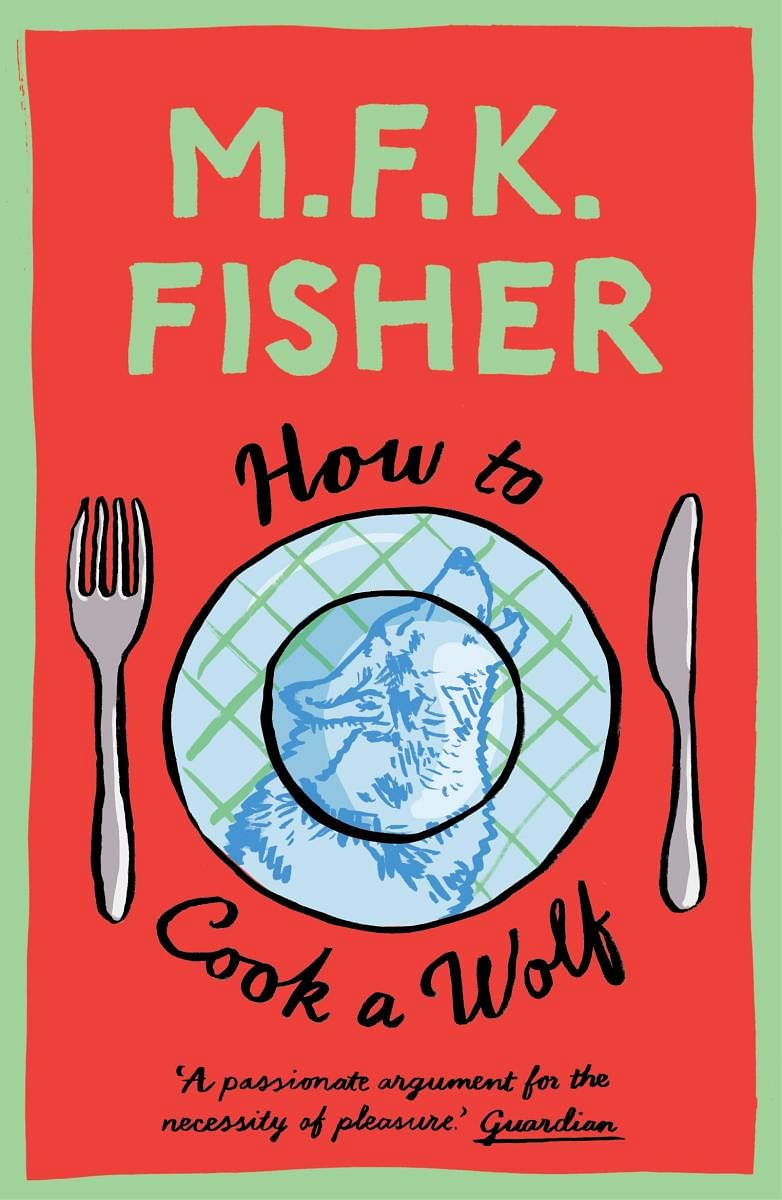
“There are too many of us, otherwise in proper focus, who feel an impatience for the demands of our bodies, and who try throughout our whole lives, none too successfully, to deafen ourselves to the voices of our various hungers.” Mary Frances Kennedy Fisher — or M F K Fisher as she was known — wrote those words at the conclusion of the revised 1951 edition of her culinary classic, How to Cook a Wolf.
Fisher was born in 1908 and gained her first knowledge about food from her family cook. After attending various colleges and getting married and moving to France, Fisher was able to exercise her fondness for food and writing and marry both to start a career in a genre that she birthed. But food writing was not taken seriously for a long time, was considered women’s work and apparently was no great demand on the intellect. Fisher truly revolutionised attitudes toward food writing with her output.
How to Cook a Wolf, about dealing with the proverbial wolf at the door in times of scarcity, was published in 1942 at the height of the Second World War. It contains both a clear-eyed approach to cooking when there are barely any supplies and the violence that wreaks havoc upon not just the dining table but the mental health of those going through air raids and worse.
Nine years later, in peacetime, the book was reissued —by then rationing had ended and markets were full of fresh produce. But as M F K Fisher wrote in the introduction, the one thing she hoped the book would engender in the reader is greater thought and thanksgiving in times of plenty even as it prepares one for what to do in wartime (should it happen again, and as current events have shown us, it can happen anytime).
So while How to Cook a Wolf has what seems to be an excellent recipe for gazpacho (a novelty one imagines for Fisher’s readers in the mid-20th century), it also teaches the basics. The very basics: one chapter is titled How to Boil Water (no, really). Fisher’s thinking in explaining why she chooses to instruct the reader on the proper way to boil water is to help people like the semi-apocryphal southern girl who, according to her mother, couldn’t even boil water before getting married. The chapter progresses naturally to soups. Vichyssoises, consommés, potato soups, the wisdom of mixing milk and tomato — the writing analysing each of these recipes is a delight to read and immerse oneself in.
Reading through the rest of the book — which also includes recipes for soap and shampoo that wouldn’t pass the test for harmful substances in this day and age — you see Fisher’s writing for what it is: the figurehead and gold standard for the food writers and bloggers of today. A while ago there were memes making fun of recipe sites that drone on about some inconsequential incident that the blogger had experienced before ponying up their recipe for apricot jam. The reason the bloggers do this is because of Fisher. But while her writing clearly grounded the importance and pleasures of food in the real world, her contemporary acolytes are doing their best to give their recipe collections added weight with reflections on everything from literary history to pop culture. Clearly, while the art is there, the heart and empathy that pulses through Fisher’s writing cannot be easily emulated. Part of that is her experience — it takes actual life experiences to write and appreciate the challenges of cooking and eating in times of strife and learning how to invite the wolf to eat along with you.
The author is a Bengaluru-based writer and communications professional with many published short stories and essays to her credit.
That One Book is a fortnightly column that does exactly what it says — takes up one great classic and tells you why it is (still) great. Come, raid the bookshelves with us.